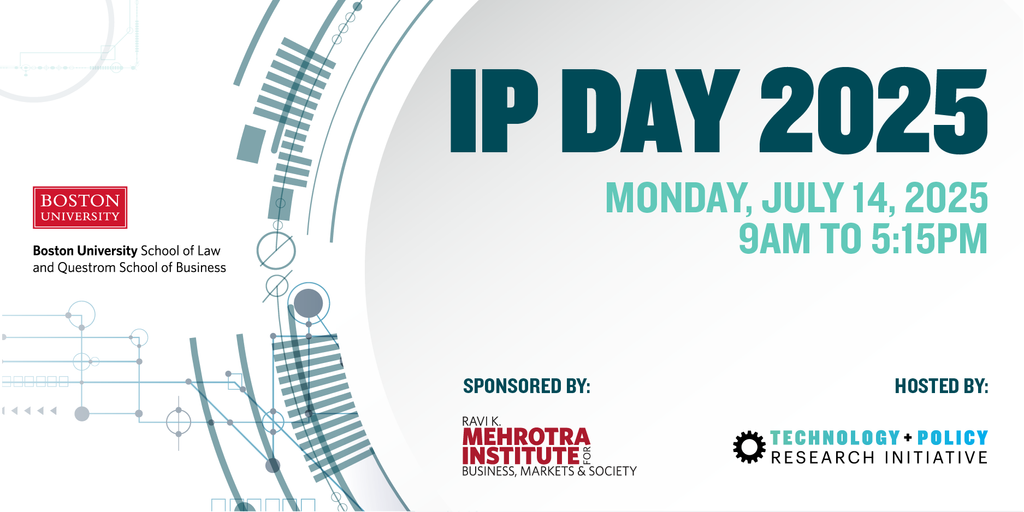
The Ravi K. Mehrotra Institute for Business, Markets, and Society will advance research, education and public discourse on the role business and markets do, can, and should play in creating value, and solving global societal challenges.
Offer educational programs that help students, business leaders, regulators, and the public better understand the role of business and markets in creating value for society
Facilitate the necessary, and often polarized, discussions on the virtues and criticisms of capitalism to break down ideological walls and elevate the discourse about the role of business in society
Conduct and support evidence-based research that explores the complex interplay of the tensions that influence business in realizing its role.
History has shown that business is a powerful force capable of so much, from growing individual and generational wealth to lifting entire societies out of poverty to driving disruptive innovations like the Covid vaccine. Business is a necessary and influential part of the solution, but the unfortunate reality is that business is increasingly vilified.
Our current cultural moment is marked by a profound re-examination of the values and market mechanisms that underpin our global economy. It is marked by polarized hypercriticism about business, profit, and the competitive, capitalist economic systems in which business operates.
The Institute arrives as a bold statement: that Boston University will lead in redefining the narrative around business and its potential as a force for positive change.

Curt Nickisch hosts a series of conversations with Questrom faculty, industry leaders, and academic experts on the role of business in society, brought to you by the Mehrotra Institute through a special partnership with WBUR.
The Ravi K. Mehrotra Institute for Business, Markets, and Society will be a place where actionable research illuminates the path forward, where innovative ideas are nurtured, and where the next generation of business leaders better understand the delicate balance between firm prosperity and societal good.
Faculty Lead: Marcel Rindisbacher

These days, it’s hard to ignore the debate over the role business should play in society.
The terms greenwashing, tech monopolies, and corporate greed seem ubiquitous. But on the other hand, maybe business could actually help solve some of today’s biggest problems?
The Is Business Broken? podcast features conversations with academics, industry leaders, and politicians that ask the thorny questions necessary for this moment and help us navigate real world solutions.
Currently Available Podcast Episodes
(all hosted by Curt Nickish):
Coming Fall 2024, we’ll explore questions of financing gene and cell therapy, and potential market solutions to reducing social media misinformation.
Faculty Lead(s): Paul Carlile, Paul McManus
Through this simulated civil discourse and debate, future business leaders will enhance their understanding of the tradeoffs they face within the context of addressing societal grand challenges. For example, meeting current clean energy goals will require coordination between government regulators, financiers, old and new technology companies, and public interest groups. In this simulation experience, participants will quickly learn about the challenges of their assigned role by harnessing the power of Gen-AI tools. The experience will be structured to expose the nuances of the playing field in a format that can be reused in multiple scenarios (e.g. education goals, health goals).
Faculty Lead: Shuba Srinivasan, DK Lee, Sami Karaca, Jay Zagorsky
This initiative aims to build a new asset for evaluating public sentiment towards business. Unlike prior work built upon survey data, this team will leverage Large Language Models (LLMs) and public news and media sources to perform an aspect-based sentiment analysis regarding the perception of business. Various sentiment indices will be used to infer changes in public opinion over time, geography, and stakeholder.
This project explores the question: What are the drivers of business sentiment? while also developing a novel aggregate sentiment index from disaggregated indices and exploring how to correct for possible media biases.
Faculty Lead: Nalin Kulatilaka, Eddie Riedl, Susan Murphy
By integrating Environmental, Social, and Governance factors into their strategies, more and more companies are seeking to foster long-term value while having positive societal impacts. Investors use ESG data to better understand financial value and risk factors that may not be reflected in traditional financial disclosures. Through a portfolio of projects, this ongoing research program explores ways to improve ESG practices from disclosure standards to how investors use the data.
Research Questions:
Faculty Lead: Rena Conti, Iain Cockburn
Gene and Cell Therapies (GCTs) are one of the most exciting biomedical advances of our time. The result of decades of public investment in fundamental science and private investment in development, these remarkable innovations are offering cures for previously untreatable diseases. But with price tags starting at $1 million per patient, GCTs present a major challenge to our system of financing health care. Can we sustain progress in bringing innovative therapies to market while making the results of these efforts accessible to all who need them? We will bring together experts and thought leaders from industry, government, and academia to discuss opportunities for novel collaborative solutions to navigate the challenges ahead.
Research Questions:
Faculty Lead: Marshall Van Alstyne
Misinformation is a widespread problem on social media. Under the current “section 230” regulation, companies are not held responsible for the content shared on their platforms. This research will explore the advertisement funding model of internet platforms and develop market solutions to reduce misinformation.
Research Questions:
Receive updates on activities and events from the Institute
Adding {{itemName}} to cart
Added {{itemName}} to cart